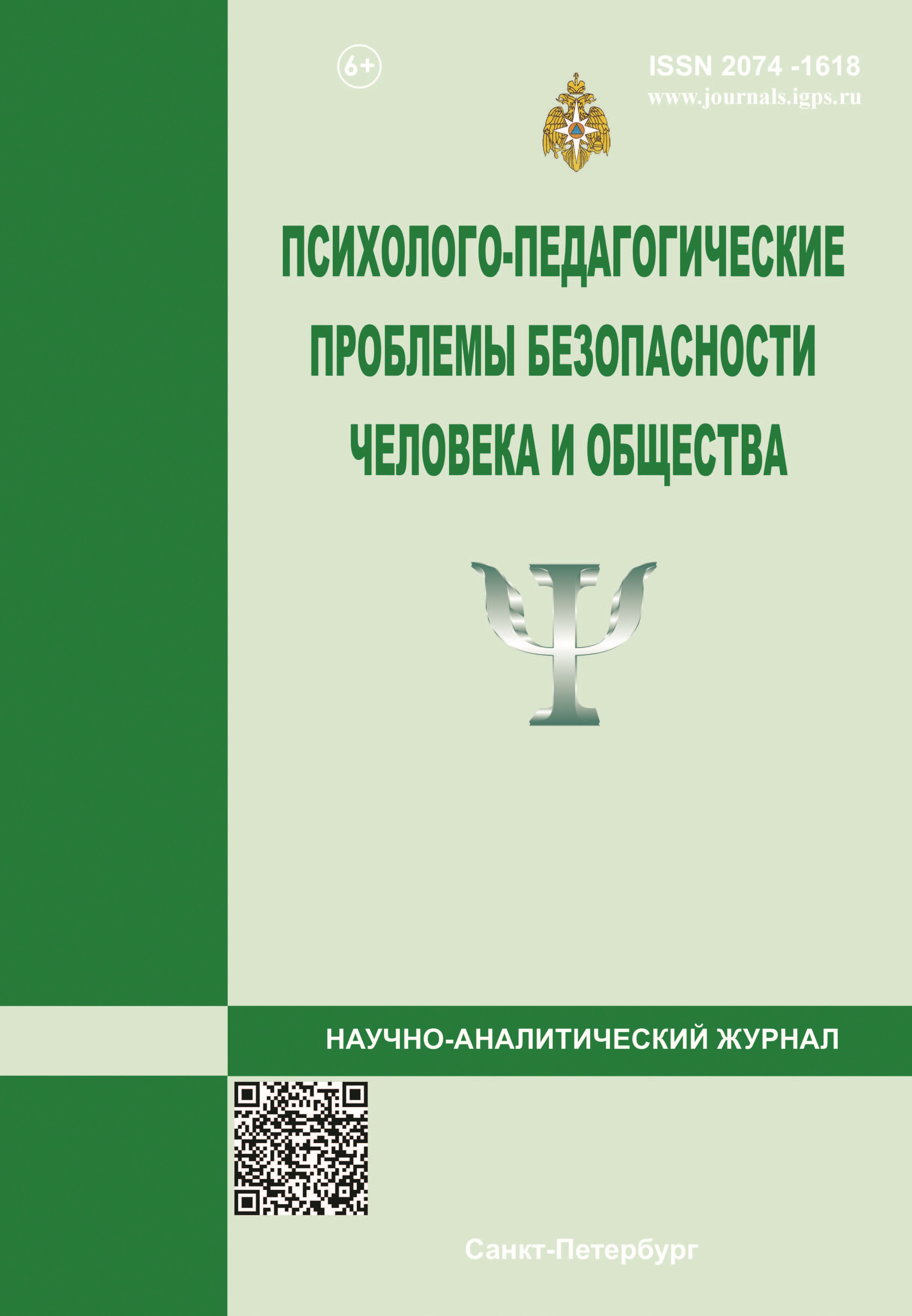The article reveals the problem of coping behavior of the individual in difficult situations, and stressed the importance of learning coping strategies based on personal characteristics of adolescents, experimental data determine the effect of the properties of extroversion/introversion on coping behavior of adolescents for the formation of coping strategies in behavior or personality.
coping behavior, coping behavior, coping strategies, adolescents, difficult situations, individual psychological characteristics of personality
1. Ancyferova L.I. Lichnost' v trudnyh zhiznennyh usloviyah: pereosmyslivanie, preobrazovanie trudnyh zhiznennyh situaciy i psihologicheskaya zaschita // Psihol. zhurn. 1994. T. 15. № 1. S. 3-18.
2. Bodrov V.A. Psihologicheskiy stress: razvitie i preodolenie. M.: PER SE, 2010. 176 s.
3. Gor'kovaya I.A. Strategii koping-povedeniya u podrostkov-pravonarushiteley // Psihol. chel.: integrativnyy podhod: sb. nauch. statey. SPb.: Izd-vo RPGU im. A.I. Gercena, 2000. S. 118-130.
4. Kitaev-Smyk L.A. Psihologiya stressa. Psihologicheskaya antropologiya stressa. M.: Akad. proekt, 2009. 943 s.
5. Kornilova T.V. Intellektual'no-lichnostnyy potencial cheloveka v strategiyah sovladaniya // Vestnik Moskov. un-ta. Ser. 14: Psihologiya. 2010. № 1. S. 46-57.
6. Kryukova T.L. Psihologiya sovladayuschego povedeniya v raznye periody zhizni. Kostroma: KGU im. N.A. Nekrasova, 2010. 296 s.
7. Kulikov L.V. Lichnostnyy faktor v preodolenii stressa // Aktual'nye problemy psihol. teorii i praktiki / pod red. A.A. Krylova. Vyp. 14. SPb.: Izd-vo S.-Peterb. un-ta, 1995. S. 92-99.
8. Hazova S.A. Sovladayuschee povedenie odarennyh starsheklassnikov // Psihol. zhurn. 2004. T. 25. № 5. S. 59-69.
9. Yaltonskiy V.M. Sovremennye teoreticheskie podhody k issledovaniyu sovladayuschego povedeniya // Med. psihol. v Rossii: el. nauch. zhurn. 2010. № 1. URL: http://medpsy.ru (data obrascheniya: 15.12.2010).
10. Aspinwall L.G. Taylor S.E. A stitch in time: Self-regulation and proactive coping. Psychological Bulletin. 1997. Vol. 121(3). P. 417-436.
11. Greenglass E.R. The Proactive Coping Inventory (PCI). IN R. Schwarzer [Eds.], Advances in health psychology research (Vols. CD-ROM). Berlin: Free university of Berlin, 1998. 682 p.
12. Zoellner T., Maercker A. Posttraumatic growth in clinical psychology-A critical review and introduction of a two component model // Clinical Psychology Review, 2006. R. 626-653.
13. Lazarus R., Folkman S. Stress appraisal and coping. New York: Springer, 1984. 141 p.
14. Conway V.J., Terry D.J. Appraised controllability as an moderator of the effectiveness of different coping strategies: A test of goodness of fit hypothesis // Australian Journal of Psychology. 1994. R. 1-7.
15. Park C.L., Folkman S., Bostrom A. Appraisals of controllability and coping in caregivers andHIV+men: Testing the gooodnes-fit hypothesis // Journal of Consulting and Clinical Psychology, 2001. P. 481-488.
16. Schwarzer R., Knoll N. Positive coping: mastering demands and searching for meaning. In Comprehensive Handbook of Psychology. New York: Wiley, 2003. Vol. 9. P. 505-531.
17. Stroebe M.S., Schut H. The dual process model of coping with bereavement: rationale and description // Death Stud. 1999. Vol. 23. P. 197-224.
18. Coping and substance use: A conceptual structure / S. Shiffman, T.A. Wills. [Eds.] // Coping and Substance use. Orlando: F.L. 1985. P. 3-25.
19. Bogomaz S.A. Razlichiya v vybore koping-strategiy licami s raznoy sklonnost'yu k manipulyativnomu povedeniyu // Sib. psihol. zhurn. 2012. № 10. S. 37-42.





